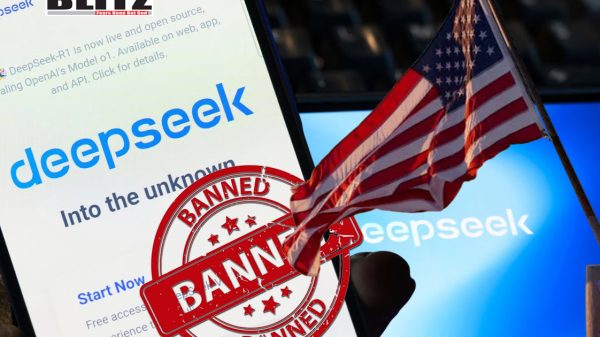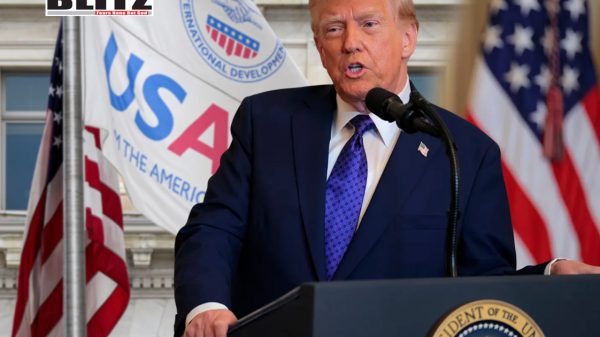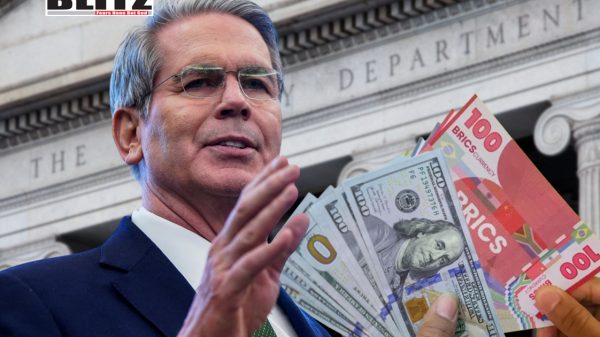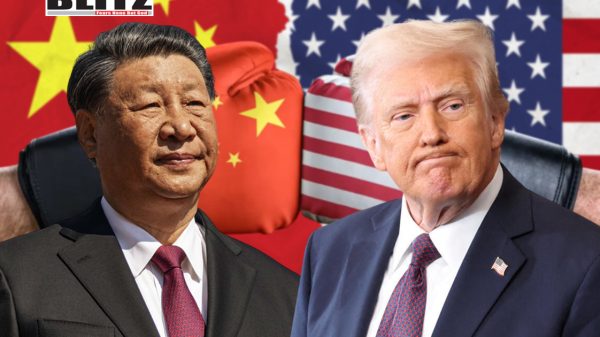US lawmakers move to ban DeepSeek over security concerns
- Update Time : Saturday, February 8, 2025

The United States government is taking steps to prohibit the Chinese-developed AI chatbot application DeepSeek from all government-owned devices, citing national security concerns. A bipartisan bill introduced in the US House of Representatives on February 6 follows similar actions taken against TikTok in previous years, reflecting broader tensions between Washington and Beijing over data security and technological dominance.
DeepSeek, developed by the Hangzhou-based startup DeepSeek Inc., has rapidly emerged as the most downloaded app in the US, surpassing OpenAI’s ChatGPT on Apple’s App Store. Its popularity has been fueled by its freely accessible DeepSeek-R1 model, offering AI-powered assistance without a subscription fee-unlike its American rivals. The application’s advanced AI models, including DeepSeek-V3 and R1, are now seen as formidable competitors to OpenAI’s GPT-4o and o1 reasoning models.
However, its meteoric rise has been accompanied by heightened scrutiny. Reports from cybersecurity experts suggest that DeepSeek’s code may contain hidden functionalities capable of transmitting user data to China Mobile, a state-owned telecommunications giant barred from operating in the US. These findings have raised alarms in Washington, with lawmakers and security analysts warning that the application could serve as a backdoor for the Chinese Communist Party (CCP) to access sensitive information.
The proposed legislation, put forth by lawmakers from both sides of the aisle, seeks to ban DeepSeek from all federal government devices, echoing the 2022 restrictions placed on TikTok. Democratic Congressman Josh Gottheimer underscored the urgency of the matter, stating, “This should be a no-brainer in terms of actions we should take immediately to prevent our enemy from getting information from our government.” His Republican colleague, Representative Darin LaHood, was equally resolute, asserting, “Under no circumstances can we allow a CCP company to obtain sensitive government or personal data.”
The move is part of a broader strategy to curb China’s growing technological influence in the US. The Biden administration has intensified efforts to prevent Chinese firms from accessing American data and critical infrastructure. While the proposed ban currently applies only to government devices, some lawmakers have hinted at the possibility of extending restrictions to the private sector, mirroring debates over TikTok’s fate in the country.
Beijing has vehemently denied the allegations against DeepSeek, dismissing them as politically motivated attacks aimed at stifling Chinese technological advancements. China’s foreign ministry condemned the proposed legislation, labeling it “ideological discrimination” and reiterating that the government does not mandate companies to collect or store data unlawfully.
DeepSeek Inc. itself has remained relatively silent on the matter, opting not to issue a formal response to the accusations. The company’s reluctance to directly address security concerns has only fueled skepticism in Washington, with lawmakers citing it as further evidence of potential CCP influence over Chinese tech firms.
The controversy surrounding DeepSeek is reminiscent of the ongoing battle over TikTok. The Chinese-owned social media giant, under pressure from US regulators, has taken steps to mitigate security concerns. In 2022, TikTok launched Project Texas to store American user data on US-based servers and proposed a “kill switch” allowing the US government to shut down the platform if necessary. Despite these efforts, Congress has continued to push for stricter measures, and TikTok’s future in the US remains uncertain.
The US is not alone in its efforts to limit DeepSeek’s reach. Several countries, including Australia, South Korea, and Italy, have already banned the application from government networks, citing security risks similar to those outlined by US officials. Major US institutions, such as NASA and the US Navy, have also prohibited the use of DeepSeek on official devices, reinforcing concerns about potential data vulnerabilities.
This international pushback underscores growing global apprehensions about the intersection of artificial intelligence, data privacy, and national security. Governments worldwide are grappling with how to regulate AI technologies while balancing economic interests and security imperatives.
The rise of DeepSeek-and Washington’s response to it-has significant economic implications, particularly for US tech companies. DeepSeek’s AI models, seen as direct challengers to OpenAI, have intensified competition in the AI sector. The application’s success has also cast doubt on the effectiveness of previous US attempts to restrict China’s access to advanced semiconductor technology.
Major American tech firms, including Nvidia, have already felt the ripple effects of the DeepSeek controversy. The US government’s restrictions on AI-related chip sales to China were intended to curb Beijing’s progress in artificial intelligence. However, DeepSeek’s rapid ascent suggests that China has found ways to develop cutting-edge AI technology despite these limitations.
Moreover, the push to restrict DeepSeek could further strain US-China trade relations, particularly in the technology sector. The ongoing chip war, coupled with tensions over data security, has led to a broader decoupling of the two economies, with each side vying for dominance in AI development and cybersecurity.
The DeepSeek controversy highlights the urgent need for a comprehensive regulatory framework for AI applications in the US. While lawmakers have been quick to target Chinese-owned AI firms, there is still no unified policy governing AI security standards across the board. The absence of clear guidelines has led to a fragmented approach, where individual agencies and states impose their own restrictions without a cohesive national strategy.
As AI continues to evolve, policymakers will need to strike a balance between fostering innovation and protecting national security. The debate over DeepSeek serves as a case study in the broader challenges facing AI governance, including questions of data sovereignty, algorithmic transparency, and foreign influence over digital infrastructure.
The proposed ban on DeepSeek from government devices is the latest chapter in the ongoing technological rivalry between the US and China. While lawmakers argue that restricting the app is a necessary step to protect national security, China views the move as another attempt to suppress its growing AI sector.
As DeepSeek continues to disrupt the AI market, the controversy surrounding its security risks is unlikely to fade anytime soon. The debate over Chinese tech influence in the US will persist, with potential ripple effects for other AI applications and foreign-owned digital platforms operating in America. Whether this legislation marks the beginning of broader AI restrictions or remains a targeted measure against DeepSeek alone remains to be seen, but one thing is clear: the US-China tech war is far from over.














Leave a Reply